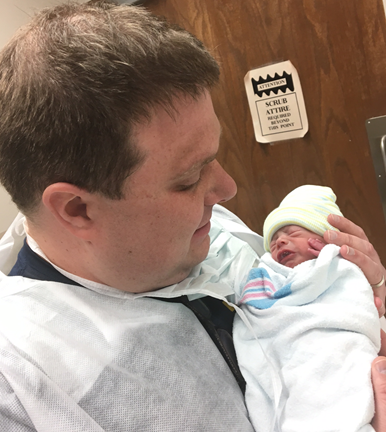Neo Fellowship Curriculum
Fellows in our program learn through a combination of bedside teaching, formal didactic sessions, online modules, and monthly simulation sessions. We use a variety of methods to help learners of all different types succeed.

Didactics Sessions
Fellows at WVU participate in a regular, rotating schedule of lunch and learn sessions made up of the following conferences.
- Physiology Conference – Guided by the ABP Board Content Specifications, fellows, neonatology faculty, and pediatric subspecialists teach core content, including Respiratory , Cardiovascular, Endocrine, Infectious Disease, and Genetic disease pathology in neonates. The physiology conference repeats on an 18-month cycle, so fellows have two opportunities to review each content area during their fellowship.
- Cardiology Conference – This session focuses on the clinical presentation, diagnostic dilemmas, management, and long-term outcomes of congenital heart disease patients. Pediatric Cardiology faculty join the group for some discussions, with others guided by Neonatal-Perinatal Medicine faculty.
- Journal Club – Fellows select a recent journal article to analyze with a faculty mentor. This is a great opportunity to review landmark papers, practice-changing literature, etc.
- Expanding the Differential – Fellows learn about less commonly encountered neonatal disorders by expanding the differential diagnosis for a recent patient or exploring a rare, recent diagnosis in detail. The focus of the conference is not simply to share details of a recent patient’s care, but rather to use a symptom or exam finding as an impetus to learn about unusual neonatal disorders.
- Scholarly Activities Hour – Understanding biomedical ethics, statistics, pharmacology, and teaching theory are all important tools in the academic neonatologist’s toolkit. This session focuses on practical applications.
- Board Review – This group session uses a Jeopardy or Q&A format to distill the previous month’s lecture material into a quick review for future reference.
- Neonatal Controversies – Managing PDA’s, screening for pulmonary hypertension in BPD, and using inhaled nitric oxide in preterm infants have been the focus of previous controversy sessions.
- Perinatal Genetics & Ultrasound Conference – Joined by colleagues from Genetics and Obstetrics, fellows review the discovery and diagnosis pathway for patients with congenital anomalies from prenatal screening to postnatal management.
- Neonatal Morbidity, Mortality, & Improvement – This multidisciplinary conference is presented by NICU fellows with mentorship by a faculty member. This conference differs from traditional M&M, in that it focuses on system issues and ways to prevent recurrent events.
- Department of Pediatrics Grand Rounds– Fellows also attend weekly morning Grand Rounds presentations. These sessions help fellows become aware of broader initiatives and resources in WVU Medicine Children’s Hospital and the Department of Pediatrics, as well as stay connected with updates in other pediatric specialties.
Clinical Meetings
Fellows are encouraged to participate in these clinical conferences when they are caring for relevant, affected patients.
- Perinatal Conference – Fellows on NICU rotation or MFM rotation attend this once monthly conference with the MFM team to discuss the management of upcoming patients with expected NICU stays.
- BPD Conference -This interprofessional conference allows the team caring for the chronic lung disease population to review new, relevant journal articles and discuss overall medical management and developmental strategies.
Simulation
Fellows have monthly simulation experiences at our on-site simulation center, WV Steps. Fellows participate in NRP and other clinical scenarios using high fidelity mannequins like Premature Anne. First-year fellows get additional procedural practice and orientation to the fellow role through the Neonatal Simulation Boot Camp hosted by Children’s Hospital of Philadelphia.
Online Modules
Fellows receive access to online learning modules and quizzes as part of the Quality Improvement and Palliative Care curricula.